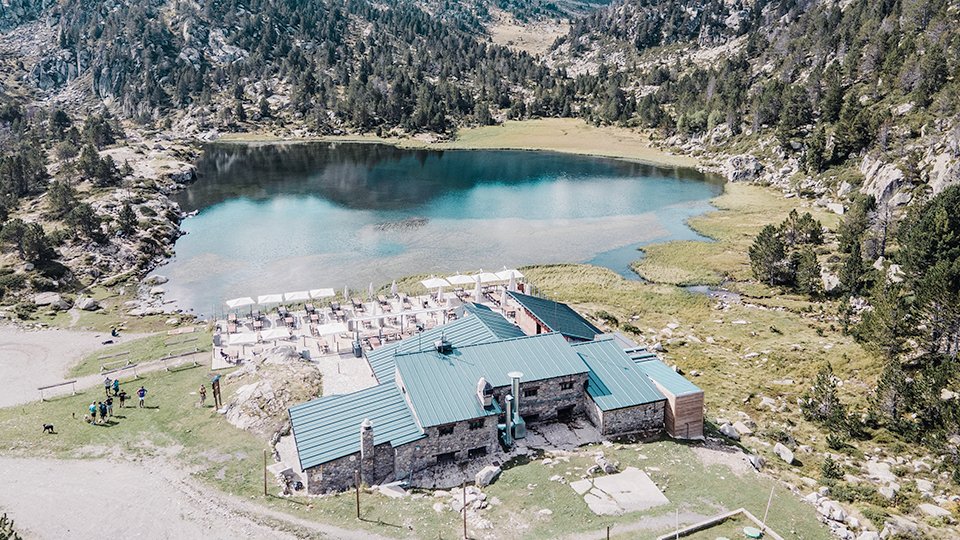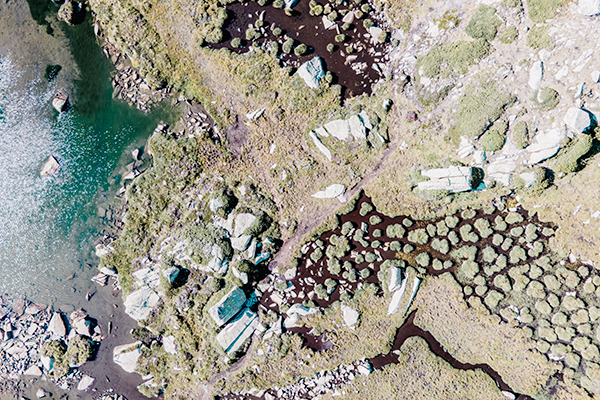
Basic Catalan vocabulary for a trip to Andorra
If you have a ski holiday in Andorra coming up in the near future, you may want to learn some basic phrases for travellers to Andorra. If so, then you’ll want to look for phrases in Catalan, which is the official language of Andorra. Even though this is one of the main official languages spoken in the Catalonia region of Spain, Andorra is actually the only country in the world that has Catalan as the sole official language.
Even though most of the locals in Andorra are bilingual and speak another language, usually Castilian Spanish, Portuguese, French or English, it’s always useful to read up on a few Catalan language basics and to prep some basic Catalan phrases for travellers before you set off for your skiing trip in the Pyrenees.

Catalan language basics for a trip to Andorra
Before getting into some basic phrases in Catalan and some English to Catalan translations, it’s important first of all to understand how the language works. Catalan is a Romance language, which means it has its roots in Latin, and it is very similar to Castilian Spanish in that sense. A lot of the Catalan vocabulary is the same, but Catalan has a broader array of sounds than Castilian Spanish and it has more irregular rules than the mostly phonetic Castilian Spanish.
Basic Catalan phrases: What are the most important basic Catalan phrases for travellers to know?
When it comes to making a list and taking note of the Catalan language basics, you’ll want to know the same kinds of phrases as you would for almost any other language in any other culture. That means words and sentences for introducing yourself and saying goodbye, or for asking basic holiday questions.
So, here comes a look at some of the most common Catalan basic words and sentences that travellers want to learn:
- How do you say ‘hello’ in Catalan? The direct translation for ‘hello’ is ‘hola’, but locals will also say ‘bon dia’ to greet each other, which is more like ‘good day’.
- How do you say ‘please’ in Catalan? The Catalan way of saying ‘please’ is ‘si us plau’, which literally means ‘if you please’.
- How do you say ‘thanks’ in Catalan? There are two common ways of thanking someone in Catalan, with ‘gràcies’ the official one but with many saying ‘merci’ too, like the French.
- How do you say ‘nice to meet you in Catalan’? After an interaction with a stranger, you might want to say ‘molt de gust’ to say that you enjoyed meeting them.
- How do you say ‘where are the toilets’ in Catalan? At some point you’ll surely need to find a toilet, and this question is asked ‘on és el lavabo?’.
- How do you say ‘I don’t speak Catalan’ and ‘do you speak English?’ in Catalan? If you’re going to end up speaking English to Catalan speakers, that’s usually fine. But, it might be nice to explain that in Catalan first, so you could say ‘no parlo el català’ and then ask ‘parles anglès?’.
Catalan food vocabulary: Translating a menu from English to Catalan and vice versa
There are so many great Andorra restaurants that you’ll want to try out during your skiing holiday and, even if most of the waiters and waitresses are multilingual, you might want to brush up on some Catalan food vocabulary. Here, then, are some of the main English to Catalan food vocabulary:
- Pa = Bread
- Formatge = Cheese
- Ous = Eggs
- Arròs = Rice
- Amanida = Salad
- Vedella = Beef
- Pollastre = Chicken
- Porc = Pork
- Peix = Fish
- Marisc = Seafood
- Aig = Water
- Café = Coffee
- Cervesa = Beer
- Vi = Wine
Other Catalan language basics: List of Catalan numbers
Without going into all the basic Catalan vocabulary, another of the most important things if you want to learn basic Catalan for your holiday is to know your numbers, as this can help with setting up the bill. So, here is the main list of Catalan numbers:
- 0 = zero
- 1 = un
- 2 = dos
- 3 = tres
- 4 = quatre
- 5 = cinc
- 6 = sis
- 7 = set
- 8 = vuit
- 9 = nou
- 10 = deu
- 11 = onze
- 12 = dotze
- 13 = tretze
- 14 = catorze
- 15 = quinze
- 16 = setze
- 17 = disset
- 18 = divuit
- 19 = dinou
- 20 = vint
- 30 = trenta
- 40 = quaranta
- 50 = cinquanta
- 60 = seixanta
- 70 = setanta
- 80 = vuitanta
- 90 = noranta
- 100 = cent
